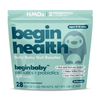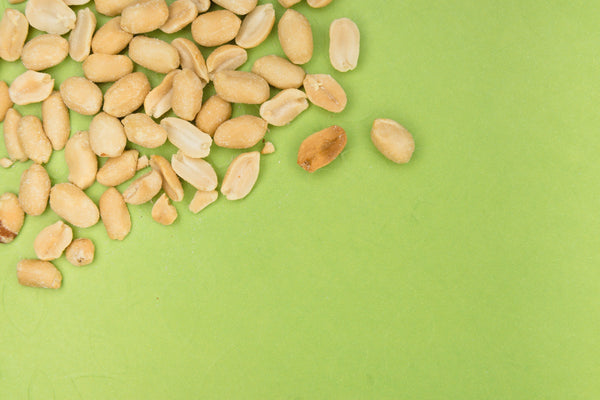What Causes Colic in Babies?
share this article

Colic is a condition characterized by prolonged periods of crying and fussiness in otherwise healthy babies, typically starting around the second week of life and often resolving by the fourth month.
It can be a distressing experience for both the babies and their parents. This blog will review into the potential causes of colic in babies along with some resolutions for parents to help an extra fussy baby.
Possible Causes of Colic
Digestive System Development
One of the most common theories about the cause of colic is related to the baby's developing digestive system.
- Gut Microbiota: Research shows that colicky babies often have different gut microbiota compositions compared to non-colicky babies [1]. Specifically, they have lower levels of Lactobacillus, which is associated with digestive health.
- Digestive Immaturity: An immature digestive system can lead to inefficient digestion, gas accumulation, and discomfort, resulting in colic symptoms [2].
Begin Health Expert Tip
Did you know that the first 1000 days of your kid's life is the most important window to helping them build a healthy microbiome? Check out what the latest research tells us about how these nutrients can help set your baby up for a healthy life.
Dietary Triggers
Food sensitivities or allergies, particularly to cow's milk protein, are also considered potential culprits.
- Cow's Milk Protein Sensitivity: A review in The Journal of Allergy and Clinical Immunology found that eliminating cow's milk protein from the diet of breastfeeding mothers or using hypoallergenic formulas can reduce colic symptoms in some babies.
- Transient Lactose Intolerance: Some babies may temporarily struggle to digest lactose, causing gas and bloating that contribute to colic [4].
Sensory Processing
Colic might be linked to how babies process sensory information from their environment.
- Sensory Overload: The developing nervous system of a baby can become easily overwhelmed by excessive sensory inputs, leading to episodes of crying and fussiness [5].
Parental Influence
The emotional state of parents can significantly impact their babies, potentially contributing to colic.
- Stress and Anxiety: Babies can pick up on their parents' stress and anxiety, which can increase their own levels of distress and crying [6].
Feeding Techniques
The way babies are fed can also play a role in the development of colic.
- Air Swallowing: Improper feeding positions can cause babies to swallow air, leading to gas buildup and colic. Ensuring proper feeding techniques can help mitigate this issue [7].
Managing and Soothing Colicky Babies
Understanding the potential causes of colic can guide parents in finding effective solutions to soothe their babies. Here are some strategies:
- Diet Adjustments: For breastfeeding mothers, eliminating potential allergens like cow’s milk from their diet can be beneficial. Switching to hypoallergenic formulas for formula-fed babies may also help.
Begin Health Expert Tip
Not all baby formulas are made the same - check out this list of ingredients our Registered Dietitian recommends to avoid in formula for your babies.
- Calming Techniques: Methods such as swaddling, gentle rocking, and white noise can soothe overstimulated babies.
- Proper Feeding: Ensuring that the baby is in an upright position during and after feeding can reduce air swallowing and associated discomfort.
Summary
Colic in babies can stem from digestive system development, dietary sensitivities, sensory processing issues, parental stress, and feeding techniques.
















